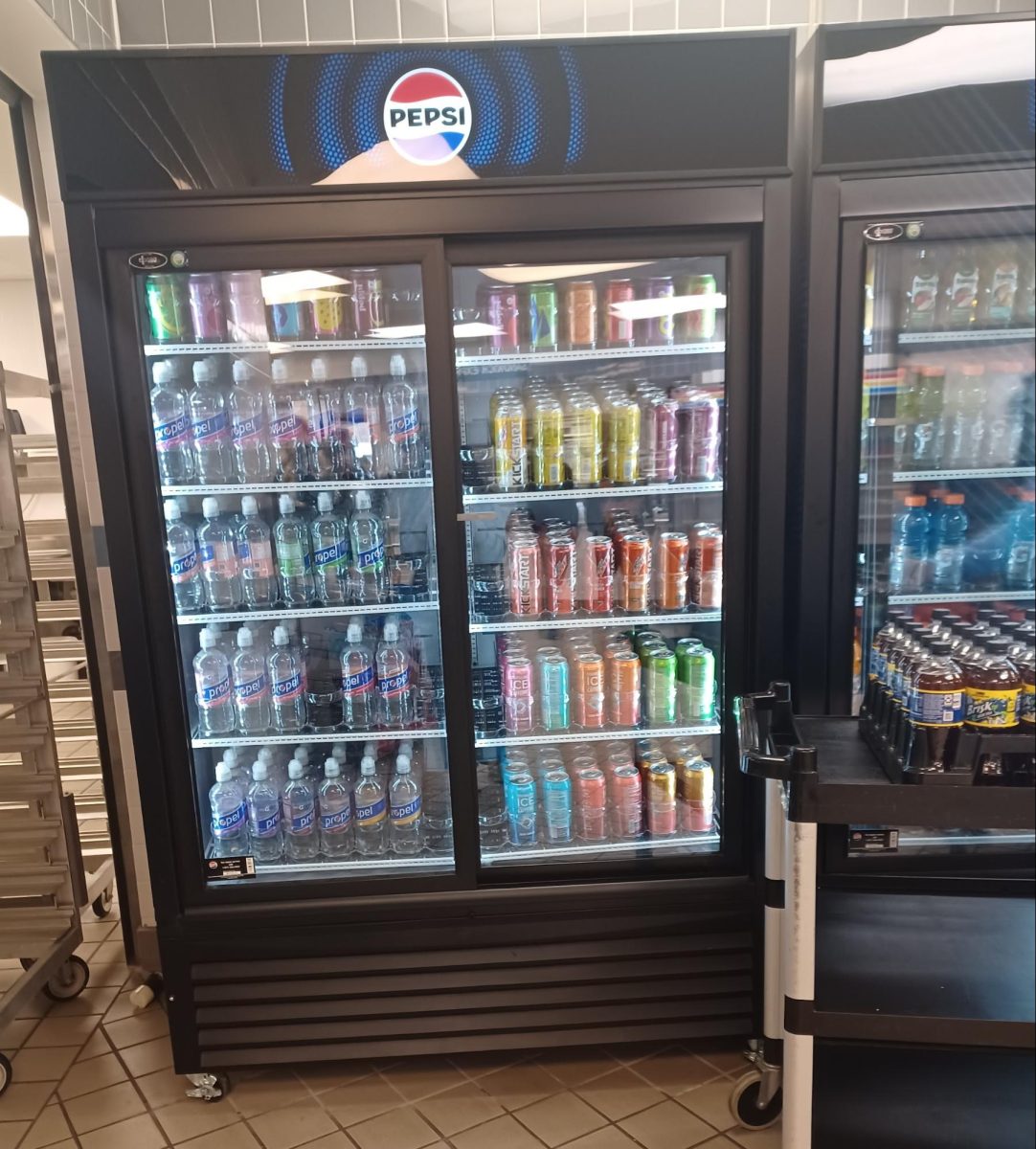No one likes to feel uncomfortable. It’s an awkward and upsetting feeling that most people actively avoid. However, it’s important to acknowledge what makes us uncomfortable in order to grow, whether that is in school, friendships or emotional wellbeing.
We generally choose to not acknowledge the things that we find uncomfortable because we, as humans, seek to fit in. It is important as a community to break this cycle and face the facts: feeling some embarrassment, awkwardness or uneasiness is normal. Society must accept that any situations that challenge us or push us out of our comfort zones are natural and can come with benefits.
The only way to get over a situation that makes you uncomfortable is by diving head-first into it. This can look like many different things, especially for high school students. Regardless of the situation, we can often grow from facing what is making us uncomfortable.
Receiving constructive criticism is one situation when we feel discomfort. Almost every student wants an A in their English class, for example, but let’s face the reality of it: for the most part, students would prefer to avoid a conference with a teacher and be told what they did wrong in order to potentially improve their grade.
“When we receive constructive criticism, we view it as, ‘I’m not good at this,’ or we view mistakes as something bad that we did rather than viewing them as areas of growth,” English teacher Christina Staker said. “We have a tendency as a culture to celebrate every little thing young kids do and give participation trophies just for completing a task, rather than teaching growth mindset from an early age.”
Most students avoid conferencing with a teacher because they fear criticism, and that is understandable. Teens typically feel the need to be right all the time, but we aren’t. Understanding that mistakes let us learn and improve is vital to the success we find in our education.
“Constructive criticism should always come from a desire to help an individual grow and strengthen their skills,” Staker said. “Accepting constructive criticism means accepting the opportunity to reach your full potential. Dreams, happiness, success…none of it is achieved by just sitting back and waiting for it to happen to you. You need to work hard and struggle to achieve these things.”
Feeling comfortable enough to approach a trusted adult or teacher and ask for help is crucial in the learning process, but what is just as important is having a good support system. You want friends who will help you and lift you up when you’re struggling, whether it is in school, life or relationships.
It is an unfortunate truth that as we age, we might lose ties to those we love. Most teens no longer have those elementary school friends they swore would be their “best friends forever,” and that’s not a bad thing. Growing apart is just a reality of growing up. There are points in time where teens realize that those they chose to be friends with when they were younger are not necessarily the right people for them now.
It is easy for teens to look past small red flags in a friendship and cherish only the good time they have with a friend. We, as humans, crave the attention that is found within relationships, so if there is one minor inconvenience, we typically act like it doesn’t bother us and move on. The problem is that one minor inconvenience can grow into many other inconveniences until the relationship becomes unhealthy.
“Even if they are little problems, bring them up,” junior Sarah Syed said. “So many people are so scared to say something because they think that they are causing too much trouble or they will lose the friendship, but if you bring those small problems up, you save yourself from a whole lot of problems in the long run. Speak up.”
An unhealthy relationship can severely damage a person’s self-worth, which is crucial to avoid as teenagers. If you can address an initial minor inconvenience, maybe you will avoid the larger fallout. If addressing an inconvenience creates a bigger problem, then maybe that person isn’t meant to be your friend in the long run.
It is completely okay to cut off a friendship, especially if it is a toxic one. Once you leave that friendship where you feel undervalued, you will be so much happier, but it does take some time to get there.
“[People] are afraid of what other people will think about them,” Syed said. “Or they are afraid of what the person might say about them or do to them. But in the end, fear is what holds most people back.”
Yes, it can be uncomfortable to address social problems, especially as teenagers who are commonly told to not talk back. However, having the courage to address a problematic issue within a friendship is essential to maintaining healthy relationships. And it is important to remember that not all relationships are meant to last forever, and that is okay. It is okay to grieve the loss of relationships that meant a lot to you.
Some topics can be very uncomfortable, but it is essential to acknowledge them for the health of a relationship. Many people tend to suppress their emotions to avoid discussing and dissecting them, but this can be detrimental to one’s mental health.
“We are expected as human beings to suffer in silence, and there is an expectation that a little bit of suffering is good for us,” Kaneland High School social worker Emily Dremel said. “We just need to talk about it. Talking about things always makes it easier.”
Oftentimes, the only way to overcome an issue is by acknowledging it first. Only after that can a person start healing.
If they choose not to confront the issue, emotions can start bottling up. Bottling emotions is risky because, eventually, that bottle will fill up. Once that container is unable to hold any more suppressed emotions, it will begin to overflow, and those issues will spill everywhere. It is important to confront issues to avoid any spillage.
There are several outlets that people can use to acknowledge and talk through their issues. These may include friends, family, support groups and therapy. Any form of therapy can be beneficial because it provides a patient with coping mechanisms, guidance, confidentiality and an objective outlook.
There is no specific formula for how to move on and deal with problems. It is crucial to acknowledge this reality, as not getting appropriate help can lead people to unhealthy coping strategies, like detachment and even substance abuse. Unhealthy approaches to healing can impact one’s ability to handle and manage life as a whole.
While dealing with the mental and emotional effects of coming to terms with a problem, self-care can help a person heal and grow from the experience. While for some it might mean a spa night with skin care and productive activities, self-care can also mean taking time to cry and unleash all of one’s emotions in a safe and private environment.
“Self-care is going to be a key component of how we deal with [our individual issues],” Dremel said. “If we are not kind to ourselves, really acknowledging what we need, we are never going to be able to move past things.”
Above all, one must not shy away from experiences that are awkward or could cause pain or embarrassment. Avoidance of problems rarely solves them. It only lets them fester. Facing the issues that affect us is the key to moving past them.
Making a tough decision can be uncomfortable, but if a decision makes you feel discomfort then it comes with an
opportunity for growth.
We grow when we face our fears and sit in discomfort. Acknowledging the uncomfortable is essential to the success that we find in our lives, and it is the key to growth.












